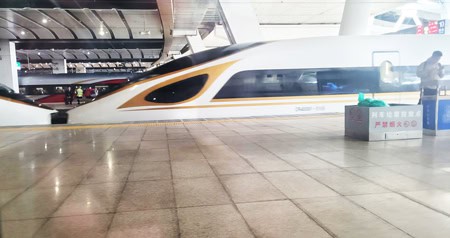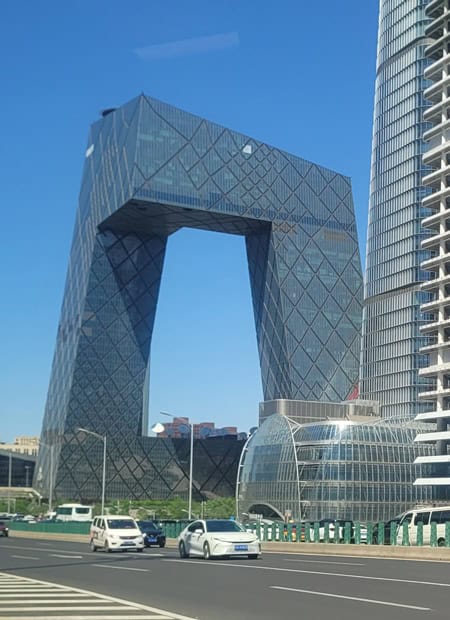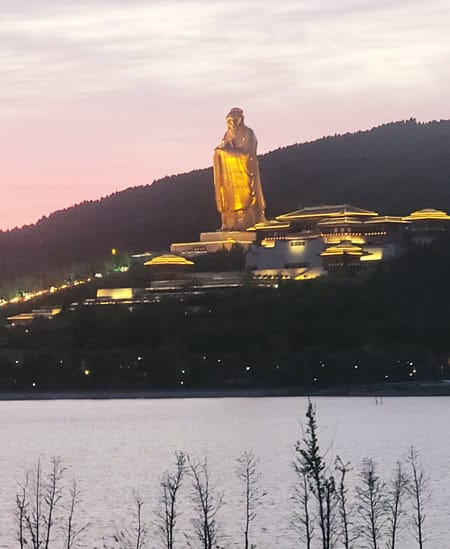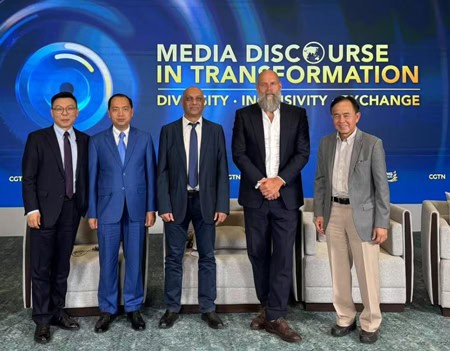At a time when headlines spread faster than truth and algorithms often trump accountability, we find ourselves in the midst of a profound struggle - not over weapons or ideologies, but over reality versus perception. The media, once a trusted mirror of society, has now become a contested space where narratives are created, reshaped and abused as weapons.
CMG Forums and Confucius link
This year, I had the privilege of attending the 4th China Media Group (CMG) Forum, held over three days in Qufu City, Shandong Province, the birthplace of the revered philosopher Confucius. The theme of the forum, "Exchange, Mutual Learning, Technological Empowerment - The Power of Civilization in Transformation and Development", could not have been more timely. At a time of rising geopolitical tensions and a rapidly evolving media environment, Qufu offered not only an environment steeped in heritage, but also a perspective through which to think about our shared future.
From drums to dates: The essence of connection
The media has always served to connect people. Long before the invention of the printing press, African and Asian societies used drums as wireless communication tools to transmit signals across forests and valleys. From these rhythms to papyrus scrolls, Gutenberg presses to global satellite broadcasting, the evolution of media has always responded to the needs of the time.
Today we hold in our hands a supercomputer - a smartphone that allows anyone, anywhere, to become a broadcaster. With that comes unprecedented power and responsibility. Our ability to influence has never been greater, nor has our need for wisdom.
The journey through China and its progress
Travelling from Beijing to Qufu by high-speed train, covering 585 km in just 2 hours and 20 minutes, I experienced first-hand a tangible example of China's transformational development. With magnetic levitation trains testing at speeds of over 600 km/h, it is clear that China's technological progress is accompanied by national confidence.

However, this progress is often distorted in dominant Western media narratives - it is not presented as progress, but as a threat. Such distortions not only fail to reflect the truth, but reveal a fear of acknowledging a multipolar world. These narratives promote insecurity and misinform citizens, many of whom are struggling with ineffective governance in their countries. The question is: Who controls the narrative - and to what end?
"We are experiencing the deepest media disruption since the invention of the printing press.., said Kirtan Bhana at the CMG Forum
Cyber Generation: rewriting the rules
One of the most encouraging developments in today's discussion is the rise of the cyber generation - globally connected youth who are not only consumers of content but also creators of meaning. With access to diverse information resources, they are challenging outdated political, religious, social and economic constructs that no longer serve inclusive progress.
These digital natives question authority, reject dogma and advocate for things that transcend borders - climate justice, economic equality, freedom of expression. Their voices, amplified by technology, are shaping a new kind of public space. Platforms like TikTok, YouTube and Twitter/X are no longer just for entertainment, but are becoming arenas for activism and transformation. The implications are huge: this generation is not taking over the status quo, but reshaping it.
Global Minds Forum and Joint Missions
At the CMG forum, I joined prominent figures including Cambodian Information Minister Neth Pheaktra, Berliner Zeitung publisher Holger Friedrich, and Thai PBS Executive Advisor Thepchai Sae Yong. Together we explored the seismic changes in the media ecosystem and the need to build a more balanced, inclusive and ethical discourse.
Moderator Qinduo Xu, a senior fellow at the Pangoal Institute, summed up the situation in his opening remarks: "We are witnessing dramatic changes in how we receive and deliver media information... countries are looking for ways to break down old barriers of public opinion." The dominance of Western narratives is waning, replaced by a multipolar media world where the Global South is growing not only in numbers but also in narrative power. From African film to Chinese innovation, Latin rhythms to Indian spirituality, cultures that were once marginalized are now at the center of global publishing.

Integrity in an era of disruption
Traditional media are fighting for survival. Newsrooms are shrinking, journalism jobs are disappearing, and with the shift to digital platforms, advertising revenue is concentrated in the hands of a few technology monopolies, not journalists. The race for attention often rewards virality over veracity.
To cope with this disruption, a renewed commitment to the values that have sustained credible journalism for centuries is needed:
- Diversified funding to support independent reporting in the public interest.
- Cultural and educational partnerships to strengthen media as infrastructure.
- Ethical advertising that supports local ecosystems.
- Integrity as a strategic priority, not a nostalgic ideal.

Confucius warned: "If the names are not right, the language does not correspond to the truth of things." In the age of clickbait and AI-generated misinformation, this wisdom rings truer than ever.
Towards a harmonious discourse ecosystem
From Qufu to Cape Town, from Beijing to Bogotá, we stand at a crossroads. We can allow the media to be manipulated by those who wish to divide, or we can reclaim it as a tool for mutual understanding, accountability and development.
Confucius's concept of "Great Harmony" represents a world where diversity is not only tolerated but celebrated; where communication is not just rapid but meaningful. To this we must move:
- From domination to dialogue.
- From echo chambers to empathy.
- From data to wisdom.
The media should serve as the connective tissue of civilization, not as its battlefield. Media wars are not just about headlines, they are about humanity. In this digital age, truth is not just what is said, but how it is shaped, shared and understood. As media practitioners, politicians and global citizens, we have a responsibility to ensure that authentic voices are heard, responsible stories are told and dignity remains at the centre of the discourse.
Let us not forget that Confucius was not just a man of words, but a man of vision. Today his vision calls us to elevate our communication to a higher purpose - to balance, understanding and harmony.
Kirtan Bhana
thediplomaticsociety/gnews.cz - cik



